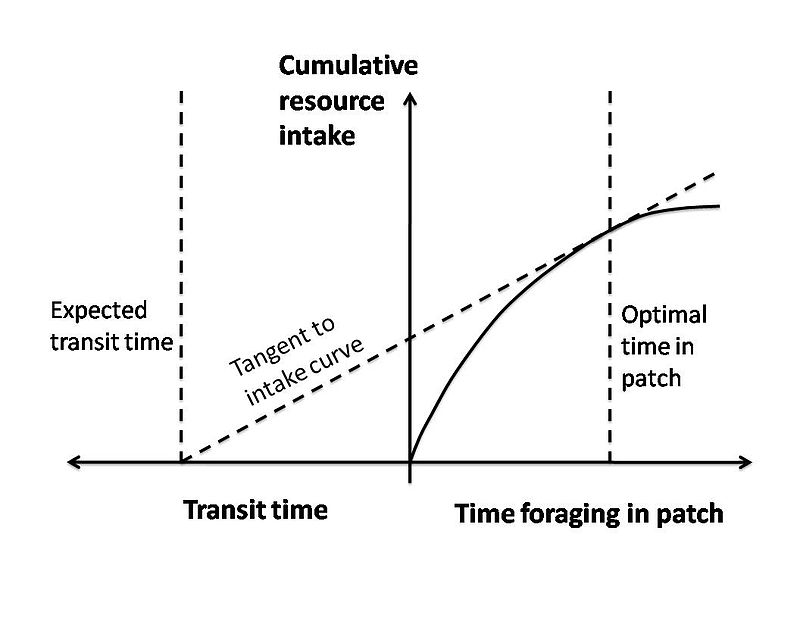I’ve been using social media, on and off, for a little over a decade. I was taking a short break from Twitter for a few weeks, but by force of habit I lurked for a few minutes to see what was on the minds of the people I follow. That was the day Kunal Kamra was banned from an Indian airlines for heckling Arnab Goswami mid-flight. There was a massive outpouring of information and opinions: everyone was talking about this and pretty much little else. Fast forward a couple of days later, just after the Oscars and everyone has an opinion on Parasite. The events of just a few days ago seem very distant.
There’s a theory of optimization known as the Marginal Value Theorem (MVT) first postulated for animal behavior by evolutionary ecologist Eric Chanov that can be used to explain this behavior in humans as well.

MVT can be used to predict how much time an animal will spend foraging in a particular patch before it seeks out another patch. Let’s take for example a squirrel. When a squirrel reaches a patch where there are a lot of acorns, it doesn’t make sense for it to seek out another patch: resource intake is high, and travel time to another place would require the use of additional energy. But as the supply of acorns dwindles, the squirrel now has to decide how much longer to stay with diminishing returns, or when to travel to another patch where there are other acorns. Optimal foraging time can be modeled using MVT to maximize the ratio between resource intake and time spent foraging and traveling.
In their wonderful book, The Distracted Mind: Ancient Brains in a High-Tech World, a neuroscientist, Adam Gazzaley, and a psychologist, Larry Rosen propose that “information” is a resource for humans, much in the way that acorns are for squirrels. And accessibility to technology has reduced the transit time between resource patches.So, what this means in effect is that access to information is driving behaviors that lead to quicker foraging of more information. And some of the effects are distractibility and the inability to deal with boredom.
I think MVT can also explain the rush to post an opinion on Twitter and other social media before it becomes irrelevant. I don’t think it explains the immediateness of an event: after all there is always something happening somewhere all the time, though technology has lowered the bar to accessibility and to being able to comment in real-time. What MVT explains is the behavioral compulsion to jump from one information patch to another. You can tweet about Kunal Kamra on the flight and have fewer and fewer people care about it (diminishing returns), or you could quickly form an opinion about another topic (transit time) and tweet in this new information patch.